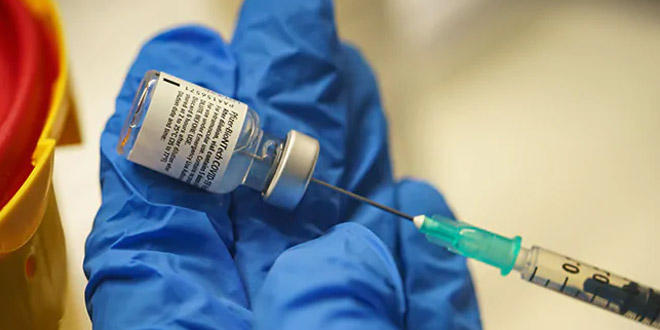Highlights
- Covaxin has been developed by Bharat Biotech and ICMR
- Covaxin is one of the COVID-19 vaccines that has got emergency use license
- 2 doses of Covaxin are given at a gap of 28 days
New Delhi: Following the administration of COVID-19 vaccine ‘Covaxin’, the recipients will remain at the vaccination site for at least 30 minutes of the observation to record any adverse event, said the Indian Council of Medical Research (ICMR) in its guidelines for the vaccination drive. The recipients will be followed-up for a period of three months after the second dose of vaccination, it said. The ICMR has issued the key Standard Operating Procedure (SoP) for the restricted use authorisation of Covaxin under clinical trial mode stating, in case of severe/serious adverse event at any given point of time after vaccination, he/she will report to the nearest health facility for treatment and will also inform the designated vaccinator.
He/she will return to the session site on day 28 or on the date given to him/her for the 2nd dose of Covaxin. All the vaccine recipients will be followed-up for a period of 3 months after the second dose of vaccination, the SoPs stated.
Also Read: UN Agencies Working Closely With India As Country Launches World’s Largest COVID Vaccination Drive
The individuals with the following conditions will not be eligible for vaccination — have any history of allergies, have a fever, bleeding disorder or are on a blood thinner, are immunocompromised, or are on a medicine that affects their immune system, pregnant, breastfeeding, have received another COVID-19 vaccine, any other serious health-related issues as determined by the Vaccinator/Officer supervising vaccination.
India has given emergency use authorisation to two COVID-19 vaccines being manufactured in the country – Covishield and Covaxin. While Covishield has been developed by AstraZeneca and Oxford University, Covaxin is an indigenous vaccine developed by Bharat Biotech in collaboration with ICMR. On January 16, Prime Minister Narendra Modi launched the world’s largest vaccination drive against the pandemic.
Also Read: Selfie Stand, Music, Magazines: Authorities Deploying Measures To Boost Vaccine Centre Turnout
(Except for the headline, this story has not been edited by NDTV staff and is published from a syndicated feed.)
NDTV – Dettol Banega Swasth India campaign is an extension of the five-year-old Banega Swachh India initiative helmed by Campaign Ambassador Amitabh Bachchan. It aims to spread awareness about critical health issues facing the country. In wake of the current COVID-19 pandemic, the need for WASH (Water, Sanitation and Hygiene) is reaffirmed as handwashing is one of the ways to prevent Coronavirus infection and other diseases. The campaign highlights the importance of nutrition and healthcare for women and children to prevent maternal and child mortality, fight malnutrition, stunting, wasting, anaemia and disease prevention through vaccines. Importance of programmes like Public Distribution System (PDS), Mid-day Meal Scheme, POSHAN Abhiyan and the role of Aganwadis and ASHA workers are also covered. Only a Swachh or clean India where toilets are used and open defecation free (ODF) status achieved as part of the Swachh Bharat Abhiyan launched by Prime Minister Narendra Modi in 2014, can eradicate diseases like diahorrea and become a Swasth or healthy India. The campaign will continue to cover issues like air pollution, waste management, plastic ban, manual scavenging and sanitation workers and menstrual hygiene.
[corona_data_new]





























